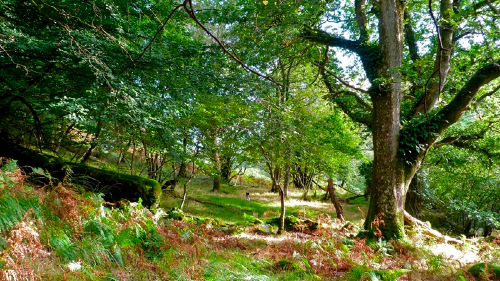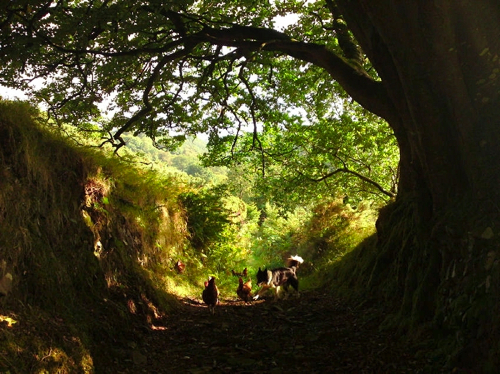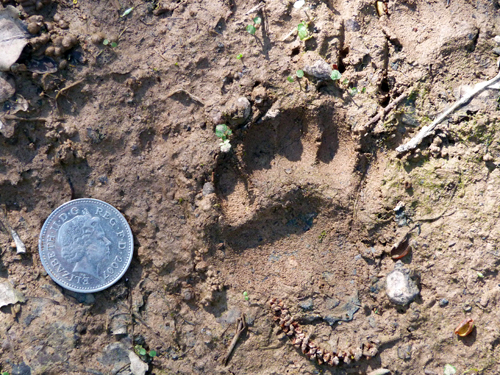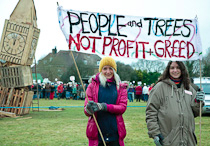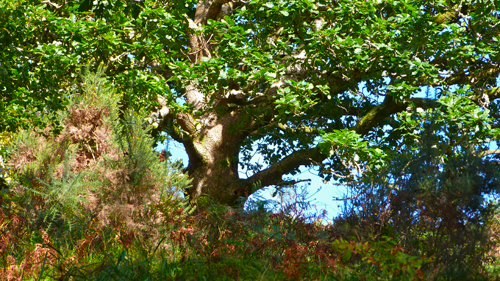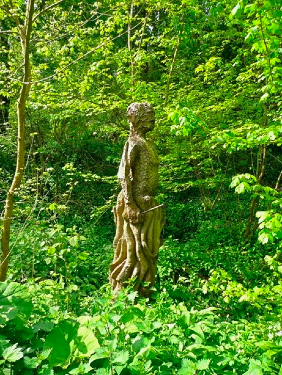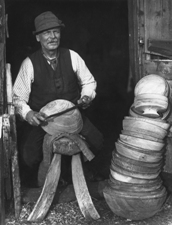Report recommends ‘triple bottom line’ valuation of England’s woodlands – delivering benefits for people, nature and the green economy
The Independent Panel on Forestry, set up to advise the Government on the future of England’s forests and woodlands, has today (4 July) published its final report to Government.
Independent Panel on Forestry – Final Report.pdf
The report calls for the benefits of England’s woods and forests to be re-valued for all the services they provide. These include not only areas for recreation, but also clean air, clean water, habitats for wildlife, locking up carbon, shading in cities – even helping in flood reduction. Wood is the raw material for timber frame buildings, furniture, flooring, fuel, and of course paper. The report highlights the ‘triple bottom line’ that forestry delivers and calls for a revival of a woodland culture that appreciates how important trees are for people, for nature and the economy.
The public forest estate is the single largest provider of outdoor leisure and recreation in England. And it is also the single largest timber producer, as well as being a vital habitat for wildlife. Research shows that these elements are producing annual returns on investment estimated at £400 million.
With over 80% of England’s woods and forests being outside of the public forest estate, they call for more of these woods and forests to be sustainably managed to create a substantial impact.
Speaking on behalf of the Panel members, The Right Reverend James Jones, Bishop of Liverpool, said:
“The Panel’s work over the last year has shown that our woodlands, managed sustainably, can offer solutions to some of the most pressing challenges facing society today. We have consulted widely, visited woods and forests around the country and read over 42,000 submissions.
There is untapped potential within England’s woodlands to create jobs, to sustain skills and livelihoods, to improve the health and wellbeing of people and to provide better and more connected places for nature.
Most importantly, the public forest estate needs to be free from the electoral cycle, for trees have long lifecycles – decisions taken now are looking to a future that is 50, or even 100, years down the line. And the bodies managing the public forest estate and advising woodland owners need to evolve and be free to become much more entrepreneurial. We recommend the expansion of woodland cover from 10% to 15% by 2060.”
The recommendations focus on maximising the social, environmental and business benefits of English woodland, so that the forestry industry will be on a more secure footing in the future. To achieve this they propose that the public forest estate should be defined in law as land held in trust for the nation so that it will always remain as a national asset.
Bishop James added
“Government investment is now needed to kick start these changes which will repay itself many times over in terms of public benefit”
END
Notes to Editors
? Caroline Spelman, Defra Secretary of State, announced that an Independent Panel to provide advice on the future of forestry, would be created on 17 February 2011.
? The 42,000 responses to the Independent Panel on Forestry’s ‘Call for Views’ covered the different aspects of forestry and showed how much people value trees, woodlands and the public forest estate.
? The Panel, whose members cover the full range of interests in forestry, were unanimous in their recommendations.
? The report highlights that Government funding for the 250,000 hectare English public forest estate is around £20m in 2012/13 – equivalent to just 90p per household or 38p per person per year. In comparison, £160 million was spent to make a 9km stretch of the A453 into a dual carriageway.
? The Charter, that would hold the public forest estate in trust for the nation so that it will always remain in public ownership, would need to be created in legislation. It would specify the public benefit mission and statutory duties, and would be renewed every 10 years. It would be delivered through a group of Guardians, or Trustees, who would be accountable to Parliament.
? A separate, expanded Forest Services organisation would work with private land owners to help them manage their woods, increase timber production, and generate the woodland culture. It would be the regulator of the Forestry sector and provide expertise on issues such as tree pests and diseases.
? The Panel’s report also calls for actions leading to:
o more people being able to enjoy access to woodlands;
o the creation of a coherent and resilient ecological network at a landscape scale, and;
o the strengthening of wood supply chains, and promotion of the use of wood more widely across society and economy.
For more information about the Independent Panel on Forestry including the terms of reference, the Progress Report published in December 2011, and the Final Report, visit their website: http://www.defra.gov.uk/forestrypanel/
Additional Quotes from Bishop James
Woodlands keep us healthy. They are places where people can get out in the fresh air and feel connected with nature, with history and with each other, away from the pressures of everyday life. Woodlands also provide vital space for plants and wildlife, and help keep our air and water clean. They reduce the effects of a changing climate, by slowing and preventing floods, by providing shade and by locking up carbon.
They form a familiar yet special part of the English landscape. Put simply, the planting of trees and woods, their conservation and management are essential elements of our common life. Our forests and woods are nature’s playground for the adventurous, museum for the curious, hospital for the stressed, cathedral for the spiritual, a livelihood for the entrepreneur. They are a microcosm of the cycle of life in which each and every part is dependent on the other; forests and woods are the benefactor of all, purifying the air that we breathe and distilling the water of life.
For further information
please contact Liz Morrison on 0207 238 6189
or email liz.morrison@defra.gsi.gov.uk













